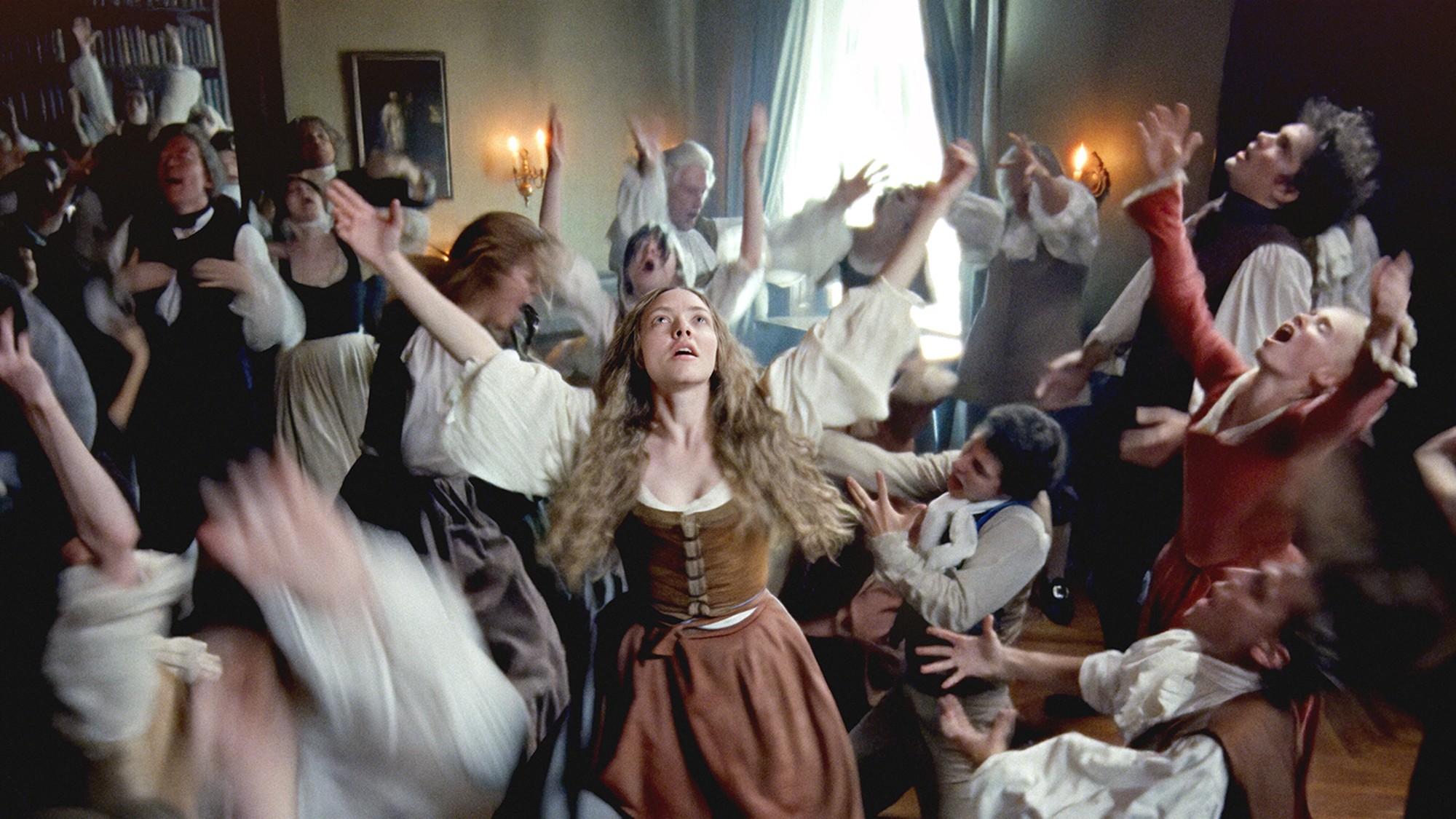The 2021 Oscar nominees could really use the bump
But the coveted box office boost might not even exist anymore


A free daily email with the biggest news stories of the day – and the best features from TheWeek.com
You are now subscribed
Your newsletter sign-up was successful
Tuesday's Oscars announcement contained the usual mix of snubs and surprises we've come to expect whenever the Academy Award nominations are revealed. Most notably, Lady Gaga failed to nab a nom for her role in House of Gucci, despite being the only leading actress nominated in every major award ceremony leading up to the Oscars, while Judy Dench made history as the oldest person nominated for Best Supporting Actress, even though critics had expected Dench's Belfast co-star Caitriona Balfe to get the nod instead.
In the end, The Power of the Dog, the Western psychodrama released by Netflix, was the big winner of the nominations round, racking up 12 chances to win the statuette, including for director Jane Campion and the husband and wife co-stars Jesse Plemons and Kirsten Dunst. Dune, the epic sci-fi adventure, followed closely with 10 nominations, while Steven Spielberg's West Side Story and Kenneth Branagh's Belfast pulled in seven nominations each. All four films were also nominated for the coveted Best Picture award, but only Dune, which has raked in $400 million at the box office, may not need the financial boost that often comes from Oscars attention. Yet in an age of streaming services and with a pandemic still altering public activities, it's an open question whether the Oscar bounce even still exists today.
Founded in 1929 by the Academy of Motion Picture Arts and Sciences to help promote the film industry, the Academy Awards have always been as much about greasing the wheels of commercialism as they have been about honoring a particular year's artistic and technical achievements in film. That's why studios shell out millions of dollars on lavish promotion and marketing campaigns to try to influence the voting, often spending nearly as much as the production budget of some of the smaller films. The hope is that a big win on Oscar night, especially in the Best Picture category, can propel an underperforming or overlooked movie to box office success.
The Week
Escape your echo chamber. Get the facts behind the news, plus analysis from multiple perspectives.

Sign up for The Week's Free Newsletters
From our morning news briefing to a weekly Good News Newsletter, get the best of The Week delivered directly to your inbox.
From our morning news briefing to a weekly Good News Newsletter, get the best of The Week delivered directly to your inbox.
For many films, Oscar gold has yielded lots of box office bullion. And often a film can start to reap the rewards before the award ceremony even takes place. That was the case for The Cider House Rules, the 2000 film adaption of the John Irving novel that starred Tobey Maguire and Charlize Theron. Before the nominations that year, the Miramax film had earned only $23 million. But after receiving seven Oscar nominations, The Cider House Rules quickly gobbled up another $22 million in ticket sales before the night of the Oscars less than six weeks later. The film only won two of those awards, losing out in the Best Picture category to American Beauty, but by then the Oscar effect had been secured; The Cider House Rules went on to make nearly $90 million.
Of course, winning the grand prize doesn't hurt. Numerous movies like Shakespeare in Love (1998), Million Dollar Baby (2004), and Moonlight (2016), to name a few, saw their fortunes skyrocket after they took home the Best Picture award. The 2008 film Slumdog Millionaire may be the best example. Although it had performed solidly with ticket sales, the movie catapulted to the top of the box office charts after it won the 2009 Best Picture award along with seven other Oscars. Ultimately, Slumdog Millionaire went on to make $380 million dollars with two-thirds of that coming in after the Academy Awards. As NPR's film critic Bob Mondello later commented, the award-winning film might have been renamed Slumdog Hundred-Millionaire thanks to its big Oscar bounce.
That's the Oscar magic film producers and studio execs hope comes their way in the next couple of months. Of the nominated Best Picture films this year, all of them, aside from Dune, could use the lift. While The Power of the Dog may be too dark and psychological to ever earn a huge audience — plus, its release on Netflix means we'll never know what it makes since the company doesn't share its box office grosses — both Belfast and West Side Story seem like just the type of movies that could benefit from Oscar buzz.
West Side Story certainly needs it. Although celebrated by critics, West Side Story has bombed at the box office, bringing in only $64 million, far short of the $300 million the high-budget production would need to make just to break even. Should West Side Story do well at the Oscars on March 27, it may find a second life with moviegoers. Yet given present circumstances, it will likely take something much bigger than even Oscars excitement to turn those numbers around.
A free daily email with the biggest news stories of the day – and the best features from TheWeek.com
Understandably, not enough Americans seem comfortable with returning to large in-person events, like movie viewings, while the pandemic persists. Although 2021 global box office receipts, totaling $21.4 billion, jumped an impressive 78 percent from the previous year, that was growth from 2020's abysmal COVID-ravaged numbers. And that $21.4 billion is almost exactly half of what movie theaters earned in 2019, when the industry hit a worldwide record of $42.5 billion in sales.
No Oscar bounce can fix that enormous deficit, especially with so many people now preferring to watch their movies from home. And with a steadily declining viewership of the televised ceremony going back to even before the pandemic, the Oscars may no longer be the office box kingmakers they once were. In 2017, for example, some 60 percent of Americans couldn't name a Best Picture nominee.
Still, if the longer history is any guide, hearing "and the Oscar goes to..." can change everything for a lucky film or two — definitely something worth thanking the Academy for.
Neil J. Young is a historian and the author of We Gather Together: The Religious Right and the Problem of Interfaith Politics. He writes frequently on American politics, culture, and religion for publications including The New York Times, The Atlantic, the Los Angeles Times, HuffPost, Vox, and Politico. He co-hosts the history podcast Past Present.
-
 What to know before filing your own taxes for the first time
What to know before filing your own taxes for the first timethe explainer Tackle this financial milestone with confidence
-
 The biggest box office flops of the 21st century
The biggest box office flops of the 21st centuryin depth Unnecessary remakes and turgid, expensive CGI-fests highlight this list of these most notorious box-office losers
-
 The 10 most infamous abductions in modern history
The 10 most infamous abductions in modern historyin depth The taking of Savannah Guthrie’s mother, Nancy, is the latest in a long string of high-profile kidnappings
-
 The biggest box office flops of the 21st century
The biggest box office flops of the 21st centuryin depth Unnecessary remakes and turgid, expensive CGI-fests highlight this list of these most notorious box-office losers
-
 The 8 best superhero movies of all time
The 8 best superhero movies of all timethe week recommends A genre that now dominates studio filmmaking once struggled to get anyone to take it seriously
-
 Heated Rivalry, Bridgerton and why sex still sells on TV
Heated Rivalry, Bridgerton and why sex still sells on TVTalking Point Gen Z – often stereotyped as prudish and puritanical – are attracted to authenticity
-
 Film reviews: ‘Send Help’ and ‘Private Life’
Film reviews: ‘Send Help’ and ‘Private Life’Feature An office doormat is stranded alone with her awful boss and a frazzled therapist turns amateur murder investigator
-
 February’s new movies include rehab facilities, 1990s Iraq and maybe an apocalypse
February’s new movies include rehab facilities, 1990s Iraq and maybe an apocalypsethe week recommends Time travelers, multiverse hoppers and an Iraqi parable highlight this month’s offerings during the depths of winter
-
 The 8 best animated family movies of all time
The 8 best animated family movies of all timethe week recomends The best kids’ movies can make anything from the apocalypse to alien invasions seem like good, wholesome fun
-
 Film reviews: ‘The Testament of Ann Lee,’ ’28 Years Later: The Bone Temple,’ and ‘Young Mothers’
Film reviews: ‘The Testament of Ann Lee,’ ’28 Years Later: The Bone Temple,’ and ‘Young Mothers’Feature A full-immersion portrait of the Shakers’ founder, a zombie virus brings out the best and worst in the human survivors, and pregnancy tests the resolve of four Belgian teenagers
-
 The 8 best biopic movies of the 21st century (so far)
The 8 best biopic movies of the 21st century (so far)the week recommends Not all true stories are feel good tales, but the best biopics offer insight into broader social and political trends
